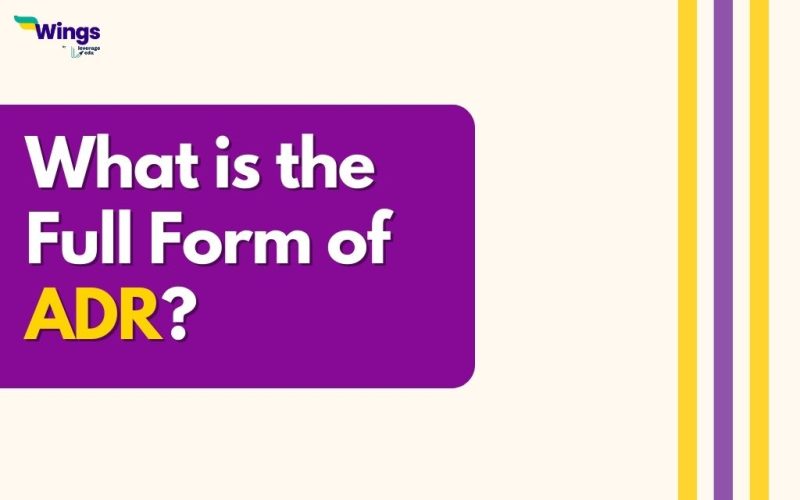The full form of ADR stands for Alternative Dispute Resolution. In the insurance industry, alternative dispute resolution (ADR) refers to a variety of techniques used by businesses to resolve claims and contractual issues. Insured clients who are refused a claim are given this option as a method of redress. It is used to prevent time-consuming and costly litigation and arbitration.
Types of Alternative Dispute Resolution
There are several types of ADR, each with its own advantages and suitable scenarios. Here are some common types of ADR:
- Mediation: In mediation, a neutral third party, the mediator, facilitates communication between the disputing parties and helps them reach a mutually acceptable solution. The mediator does not make decisions but assists the parties in negotiating and finding common ground.
Mediation is often used in family disputes, workplace conflicts, and civil disputes. - Arbitration: In arbitration, a neutral third party, the arbitrator, listens to both sides of the dispute and makes a binding decision. The process is more formal than mediation, and the arbitrator’s decision is legally enforceable. Arbitration is frequently used in commercial disputes, labour disagreements, and international disputes.
- Negotiation: Negotiation is the simplest form of ADR, where the parties involved directly discuss the issue and attempt to come to an agreement without the involvement of a third party. It can be informal or formal and is used in various contexts, including business transactions, contract disputes, and interpersonal conflicts.
- Collaborative Law: Collaborative law involves each party hiring their own attorney, and all parties commit to resolving the dispute without going to court. The parties and their attorneys work together to reach a settlement through negotiations, with a focus on finding creative solutions that meet the interests of all parties involved. If the collaborative process fails, the attorneys withdraw, and the parties can proceed to litigation.
- Conciliation: Conciliation is similar to mediation, but the conciliator takes a more active role in proposing solutions and encouraging settlement. The conciliator’s suggestions are not binding, but they can guide the parties toward a resolution. This method is often used in labour disputes and international conflicts.
- Mini-Trials: Mini-trials involve a condensed version of a trial where both parties present their case to a panel of decision-makers, which could include executives, legal experts, or neutral parties. After hearing the presentations, the panel provides non-binding recommendations to guide the parties toward a settlement.
- Neutral Evaluation: In neutral evaluation, a neutral third party with expertise in the relevant area evaluates the case’s strengths and weaknesses and provides an assessment of the likely outcome if the case were to proceed to court. This information helps the parties make informed decisions about settling the dispute.
- Online Dispute Resolution (ODR): ODR involves using online platforms and technology to facilitate the resolution of disputes. It can encompass various ADR methods, such as negotiation, mediation, and arbitration, conducted entirely or partially online. ODR is particularly useful for disputes involving parties in different geographic locations.
Pros of ADR
Alternative dispute resolution (ADR) is promoted as a way for consumers to save time and money. Civil claims are expensive to undertake, and if you can obtain an attorney to handle your case on a contingency basis, you’ll normally give up at least one-third of whatever money you win.
Cons of ADR
However, alternative dispute resolution (ADR) may not always deliver on its commitments. This path can sometimes be just as expensive and stressful as the litigation journey it is meant to replace, especially when a big and complex claim is at stake and there are widely divergent views on how the facts should be understood.
Must Read: What is the Full Form of DBOD?
For more information, keep reading about various full forms in our general knowledge section!
 One app for all your study abroad needs
One app for all your study abroad needs













